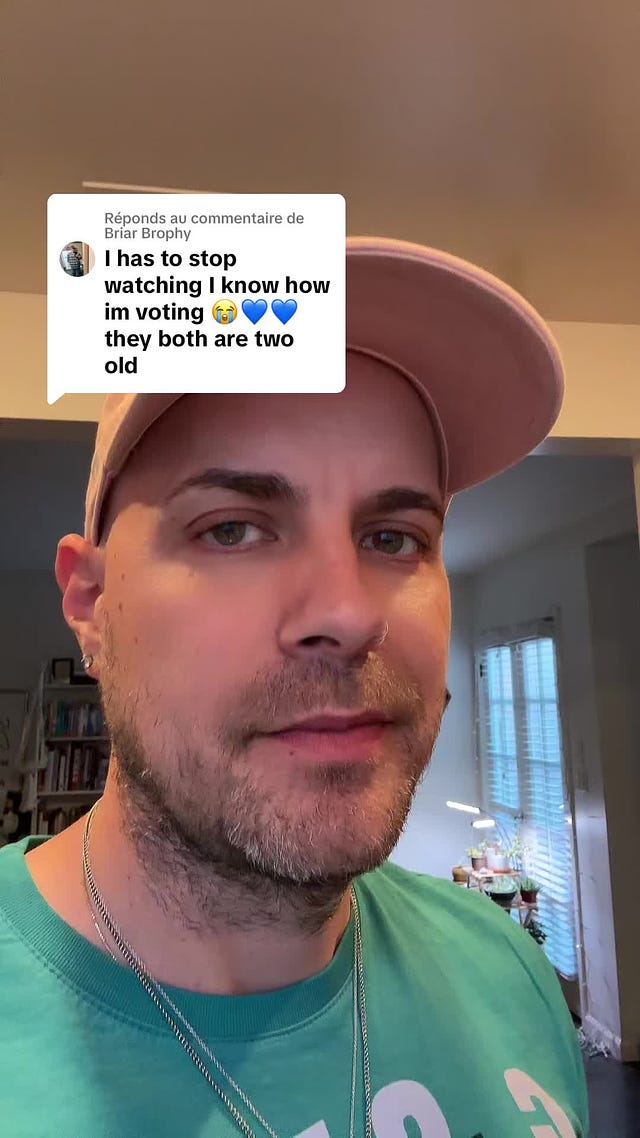The Publishing Industry Needs Project Managers (& More Imagination)
Because this shit is getting ridiculous

I pride myself on my patience. In virtually every domain except driving in LA I’m an incredibly patient man. Part of that is my empathetic imagination. Part of that is that I don’t expect to be the center of other people’s universes now or ever, especially since my books don’t command the same amount of attention as the Big-5 darlings of the literary world. And part is that I understand that my books ask a lot of readers and literary fiction rarely pays the bills for agents, so I’d prefer that agents take their time with my work and come back to me once they’ve had enough time to approach my writing on its own terms and consider its place in the literary marketplace afterwards. If agents are rushed, they’re going to simply look for work that already exists in the corporate catalogs. If they’re given time, they might not. So, for all these reasons, I’ve learned to be incredibly patient when waiting to hear back from literary agents. Maybe you’ve heard the industry adage: six months for the author feels like six weeks to the agent. Time distortion is a real and vicious thing in this bizz. This is why emerging authors experience time differently than agents.
But time distortion isn’t an excuse. The time has come (pun intended) for literary agencies to abandon their current submission methodology and adopt some of the organizational principles of project management because this shit is ridiculous. The industry is broken and backlogged and in desperate need of improvement and has been for a long time. At the end of the day, it’s both writers and editors who suffer from this dysfunctional model.
Literary agents have been the gatekeepers of publishing since the moment the Big-5 required literary agents for submissions. And really, who could blame them? Gone are the days when writers like Hemingway and Jack Kerouac and Dorthy Parker could just send off their typewritten manuscripts to editors. As more and more Americans decided they were writers and as more and more MFA programs catered to American literary conceit where every student was told to “do what you love” (and what do students love more than finding their own voice?), it became inevitable that there would be too many MFA programs, too many MFA graduates, too many aspiring writers, & too many query letters piling up in the inboxes of literary agencies. That reality isn’t the fault of the industry. But literary agencies just aren’t up to the task and haven’t been for a very long time. They don’t have enough editorial assistants and the ones they do have are overworked helping the clients they already have. What’s happening, now, though, is that the best literary agencies don’t even respond to query letters anymore. Not even form rejections.
Even more egregious, after requesting partial and even full manuscripts from prospective clients, literary agencies now ghost writers the instant they lose interest, which is a blatant breach of professional etiquette. If you don’t have enough time, employees, or organizational proficiency to send rejection emails to the writers whose books you asked to read in full or in part, then you don’t have enough time for submissions. It’s as simple as that. It would be much more honest and productive to simply close down submissions and state that submissions are by referral only until further notice. That way, you stopped wasting everyone’s time and as an agency, you’ve built a dam protecting yourself from the massive deluge of unsolicited query letters and attached manuscripts that have only multiplied with digital submissions and tech-savvy MFA students.
For the record, I feel the same way about companies that don’t send employment decisions to applicants once a position has been filled. No one likes form rejections, but they at least give us closure and help shut down the dreamworld inside of us. That’s important. And literary agencies routinely drop the ball when it comes to keeping track of submissions and communicating with prospective clients about their manuscripts.
This is precisely why I think literary agencies should hire literary project managers who focus exclusively on upcoming projects so that the interns and junior assistants can focus almost exclusively on the slush pile, learn the ropes about query letters, & slowly begin forming their own list as budding junior agents while using current project management software that includes organizational grids, programmed deadlines, weekly and monthly reminders, GANTT charts for both sold and solicited manuscripts, & if necessary, automated form rejections sent to clients after a certain amount of time has elapsed.
The alternative is the status quo, which is absolutely not working for anyone. Least of all, writers. I have a deep well of stories about agents behaving badly, but let me give you a quick and dirty summary:
The time a big name agent emailed me after reading one of my short stories in a major literary journal and asked for my novel. I send it to them, they weren’t feeling it, then I sent them my newest novel, & somehow along the way that agent disappeared from the scene and suddenly I was responding to a junior agent I hadn’t agreed to work with who dismissed my novel for having a small audience
The time a big name agent asked for my novel and a bunch of short stories after I name-dropped several big-5 editors I was working with during a summer internship in New York (they told me to do it), then passed me on to a junior agent, who happened to be their own (adult) kid who sat on my manuscript for almost a year before rejecting me
The time a mid-level agent agreed to read several of my books after we’d talked on the phone in late spring. They promised to read both manuscripts after their vacation and then get back to me in the summer. Instead, they ghosted me for seven months until right before the Christmas holidays and then said I can’t fix your novels. I guess you gotta have a clear conscience before you hit the cognac and eggnog.
Countless agents making me wait over a year after requesting both partial and full manuscripts and then responding only after I emailed them repeatedly asking for status updates, which I absolutely hate doing
Countless agents ghosting me after they’d requested full manuscripts and then rejected me inside their head. As if they didn’t owe me a professional courtesy once I’d stop being useful to their potential income
The time an agent rejected one of my books because it wasn’t universal enough even though it was about relationships, identity, love, language, & travel and then later sold a book by another author whose book was about relationships, identity, love, & time travel
The time an agent told me that I was trying too hard and that I should learn from writers like DFW whose writing was great because it felt effortless, an adjective I have literally never associated with the books of David Foster Wallace
To be fair, I’ve also had many fabulous interactions with agents whose responses have been nothing but kind, generous, thoughtful, candid, adjacently supportive, honest about their own limitations & generic biases, incredibly smart and useful, insightful, & very helpful as an emerging writer. Some agents are definite scumbags, but just as many are awesome, even in their rejections. But the point here is that if you want to publish your book with Little Brown, Riverhead, Penguin, One World, Ecco, Simon & Schuster et al., as I do, you’ll need a really good agent and many of the best agents already have near-full client lists. Some have, as mentioned above, closed the door to queries at this point, which seems only fair if they really don’t have time to read new manuscripts by prospective authors.
But as a literary fiction writer, it can feel like an impossible moment in time: poets now have agents. Poets are now publishing novels. Poets are now publishing works of nonfiction. Nonfiction writers are now publishing novels. A lot of people are publishing debut novels in Big-5 presses who don’t even self-identify as fiction writers. It can feel like novels have become the trophy for writers who have already made it in other genres (or in pop culture at large). It can also feel like literary agents are interested in almost every kind of writer except self-identified literary fiction writers at this point. And again, considering how bad the sales of literary fiction titles are compared to say, commercial fiction, memoir, or even poetry, can we really blame them? I think the problem here is that these recent market trends have instilled a quiet and unacknowledged conservatism in literary agents for a while now. They’re afraid of taking risks and they have idiosyncratic tastes and they reject thousands of novels each year based on taste and marketability, not merit or potential. And literary fiction writers have been in a losing battle with literary capitalism forever that rarely sees value in works of literary fiction unless those writers also have a platform, name recognition, industry hype, virality, a perfect origin story, or a million followers on IG.
The downside to all of this is that far too often literary agents and literary editors lack imagination and if you’re a wildly imaginative, creative, and ambitious writer like I am, that’s a recipe for heartbreak. Because they respect and understand the market before anything else, they have a hard time seeing value in books that don’t already exist in Big-5 catalogs. They don’t want the next best thing, they want the last great thing. Because the last great thing comes with analytics.
Quite a few of my woman writer friends with agents have confessed to me that it’s a bad time to be a male writer because the market and the industry doesn’t want male writers. It wants a hot girl summer every quarter. And I get it. But that’s not me. I think back to a story my thesis adviser, mentor, & friend, Viet Thanh Nguyen, once told me about selling The Sympathizer. I’m sure I’m messing up the exact details, but the gist is this: every single editor passed on it except Peter Blackstock. The very last editor. Viet was literally one editor away from being an unpublished author. And look what an amazing literary career he has had since that pivotal moment!
But it took imagination, audacity, & frankly, outside-the-box thinking on his agent and editor’s part for Viet to have his moment. It took imagination on the part of HBO studios too.
But how many other writers will never have their moment? How many agents and editors will never have the imagination for language-driven, character based, mixed-race, Asian writers like me? I think about this all the time both for inspiration and realism. I honestly don’t know if I’ll get my dream agent this year or not. But if I do, I know they will have both cachet and imagination because that’s the only kind of literary agent that will take the time to understand me as an artist & have the influence in the industry to support my writing career and make shit happen. My fingers are crossed even if my mind is worried.
Recent News & Content
 Tiktok failed to load.
Tiktok failed to load.Enable 3rd party cookies or use another browser




